The views expressed in our content reflect individual perspectives and do not represent the authoritative views of the Baha'i Faith.
Baha’i environmentalist Richard St. Barbe Baker’s work touched the lives of many people, who recall with fondness the inspiration and fascination provided by his near-mythical exploits. A globe-trotting dynamo, he set in motion tree-planting initiatives around the world while campaigning and educating on an array of other forestry and environmental concerns as well.
Richard St. Barbe Baker first proposed planting a band of trees across Africa to stop the southern advance of the Sahara in 1952, as he set out on an ecological expedition through the desert. His appeal for a “Green Front against the desert” will finally take shape as an international effort continues to plant the first trees to create Africa’s Great Green Wall. This concerted effort will eventually become a nine-mile deep, 4,000-mile-long wall of trees, passing through eleven African countries—what some call the greatest environmental collaboration in history.
A recent article in England’s Sunday Times acknowledged the Man of the Trees:
The idea was originally conceived by the British explorer Richard St. Barbe Baker during his 25,000-mile expedition to the Sahara in the 1950s. Baker believed that tree-planting could reclaim the desert.
“St. Barbe,” as he was affectionately known to his friends, promoted his original proposal from 1952, referred to above, for the next thirty years. He called for a “Green Front” of trees across Africa thirty miles wide. The current international initiative calls for a smaller nine-mile wide “Green Wall” of trees. Nonetheless, the present undertaking represents a potential last-minute turning point in the battle to check the negative processes of desertification and climate change.
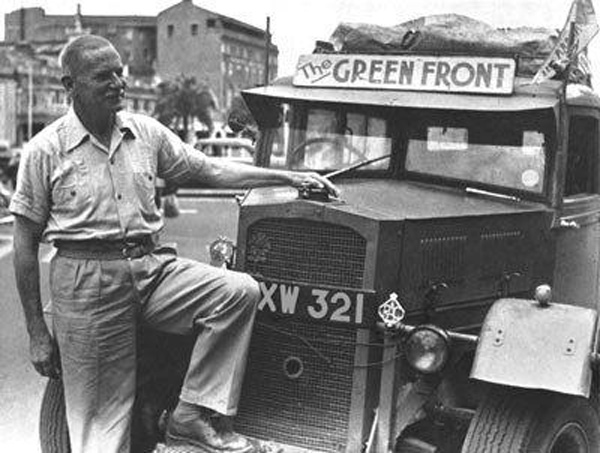
Nairobi, Kenya, 1953—Richard St. Barbe Baker at the conclusion of the First Sahara University Expedition
Richard St. Barbe Baker, (1889-1982), inspired the planting of more trees than any other person in history. When one considers his pioneering forestry work on the ground in Africa, the programs he initiated in dozens of countries, the organizations he founded or co-founded, his prolific writings, radio and television interviews, lecture tours, Baha’i public meetings, films, press conferences, expeditions, visits to schools and government agencies, and his consultations with heads of state, the scope of his legacy defies enumeration.
St. Barbe’s efforts and insights, bolstered by the World Forestry Charter Gatherings he began in 1945, effected changes in the science of silviculture at the planetary level. This beloved, versatile, spiritual genius wove the totality of his activities around a single purpose, best expressed by the title famed radio broadcaster Lowell Thomas bestowed on him: “The Man of the Trees.”
By the middle of the 20th Century, St. Barbe viewed the earth’s ecosystems as already being in a state of crisis. He urged the mobilization of twenty-two million tree-planters, from the standing armies of the world, to reverse the desertification processes on this planet. If only the governments of the world had acted!
Think of the regulating effect on the climate, and the implications for peaceful co-existence and food security in Africa and elsewhere, if billions of trees, many of which would now be half-a-century-old, had been planted in a cooperative effort in lands that are now barren desert. As St. Barbe effectively demonstrated while in the colonial administration of forests in Kenya and Nigeria in the 1920’s and 1930’s, mixed age, mixed species trees—with a heavy emphasis on native species—can be combined with local agriculture to directly benefit, and enlist the stewardship of, indigenous populations. He wrote and lectured extensively on these concepts, which have become known as ‘social forestry,’ ‘agro-forestry,’ and ‘permaculture.’
Decades before James Lovelock & Lynn Margulis propounded the Gaia Hypothesis in the 1970’s, St. Barbe spoke of the earth as a living organism. In this he echoed poets, seers and holy Ones throughout the ages:
Nature in its essence is the embodiment of My Name, the Maker, the Creator.
– Baha’u’llah, Tablets of Baha’u’llah, p. 141.
Abdu’l-Baha, speaking of the earth as an organism in 1911, remarked “she, too, lives and has a life of her own.” – Paris Talks, p. 62.
Please follow along in the upcoming installments as we explore the insights, life and legacy of the Man of the Trees.


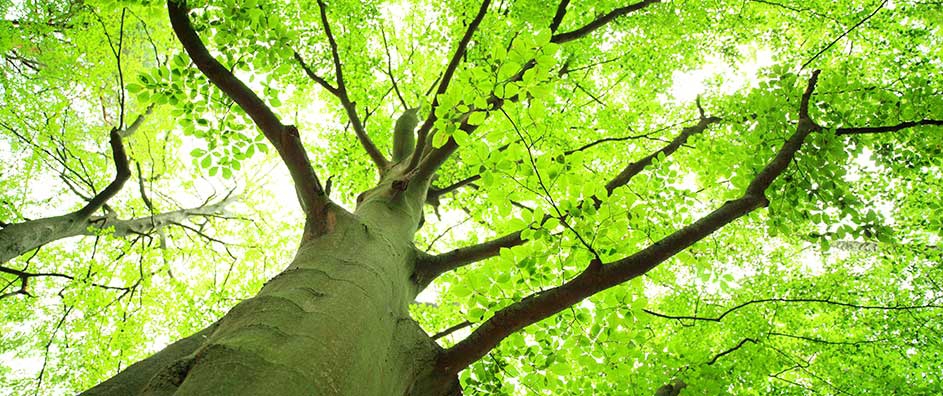
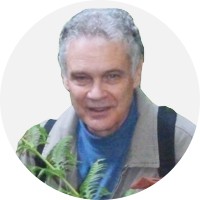
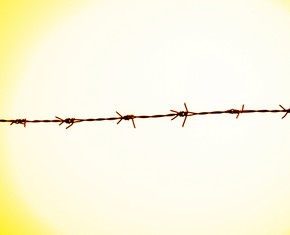
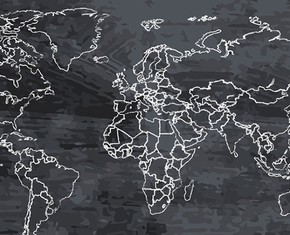










Comments
Sign in or create an account
Continue with Googleor